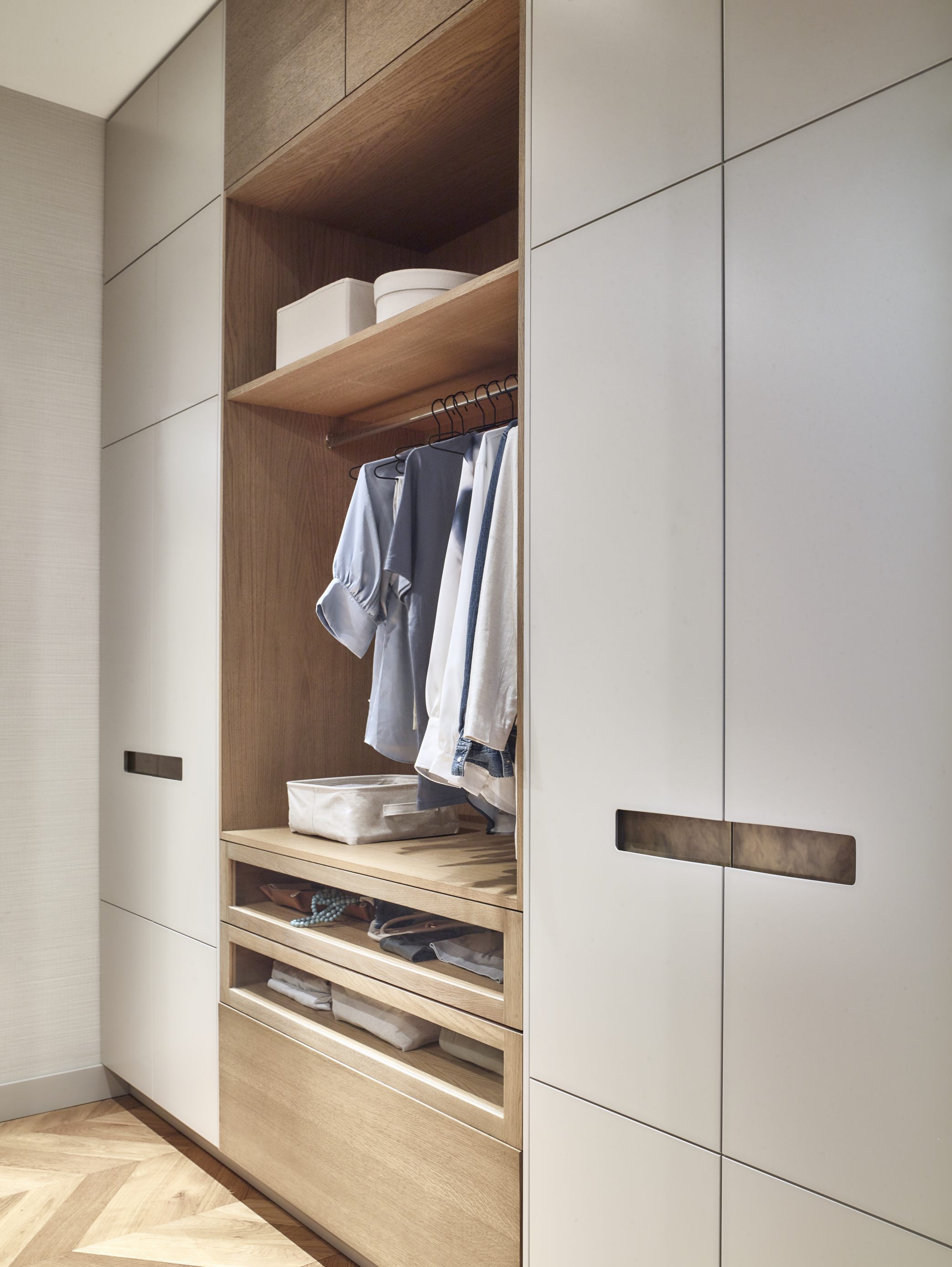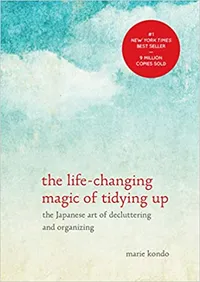Does clutter make you lazy? And how do you overcome it?
Experts explain whether or not clutter makes you lazier, and offer quick low-energy decluttering tips


Design expertise in your inbox – from inspiring decorating ideas and beautiful celebrity homes to practical gardening advice and shopping round-ups.
You are now subscribed
Your newsletter sign-up was successful
Want to add more newsletters?

Twice a week
Homes&Gardens
The ultimate interior design resource from the world's leading experts - discover inspiring decorating ideas, color scheming know-how, garden inspiration and shopping expertise.

Once a week
In The Loop from Next In Design
Members of the Next in Design Circle will receive In the Loop, our weekly email filled with trade news, names to know and spotlight moments. Together we’re building a brighter design future.

Twice a week
Cucina
Whether you’re passionate about hosting exquisite dinners, experimenting with culinary trends, or perfecting your kitchen's design with timeless elegance and innovative functionality, this newsletter is here to inspire
A slightly cluttered house is normal, but when endless clutter begins to get in the way of everyday life it becomes problematic. If you are left not knowing how or where to start you may be wondering, does clutter make you lazy?
The answer is not a straightforward one, especially if you have already tried to implement decluttering tips with little success.
Luckily, there are plenty of ways to get out of a decluttering rut, and even declutter your home when you feel overwhelmed so that you can feel more productive and start to eliminate stressful mess.
Here, experts explain whether clutter itself disempowers and makes you lazy, and we provide three quick and easy methods to help you start decluttering your home.
Does clutter make you lazy?

Whether or not clutter makes you lazy is a contested topic, though given that experts suggest a messy house can cause depression, it's perhaps not too much of stretch to believe that a cluttered home can cause lethargy or, if you like, laziness.
‘Clutter in your home can cause a domino effect leading to laziness,’ Jamie Hord, founder of Horderly Home Organizing explains. ‘Visual clutter can become a mental block and wear out any additional focus you have to "clean up".'
One part of overcoming this feeling of laziness is to avoid making common decluttering mistakes, Jamie adds. ‘Staying ahead of your organization and implementing systems that create ease and maintenance is key to getting and staying organized – and keep up your energy!’
Design expertise in your inbox – from inspiring decorating ideas and beautiful celebrity homes to practical gardening advice and shopping round-ups.
Kim Grubbs, psychologist and founder of Downsize Matters, argues that household clutter is more likely to be a symptom or a sign thtat you are overwhelmed, rather than lazy.
'Clutter does not make one lazier, nor does it indicate that someone is lazy,’ argues Kim. ‘What it does do is create a scenario by which one becomes entirely overwhelmed at the thought of wanting to or having to tackle a monumental task. If someone finds themselves overwhelmed with such a project, they are often defeated before they even begin.
'They are aware of how long it took the amount of clutter to reach such proportions, and falsely believe it will take as long to undo as it did to accumulate. That’s not a valid assessment,’ she determines.
The trick to overcome the inaction caused by the terrifying proportions of clutter you might have built up is, say organizing experts, to tackle the decluttering process in small increments – with some suggestions below. Each time you have tackled one particular decluttering task, you will feel less overwhelmed, and less inclined to inaction in future.
Easy, low-energy methods of decluttering
If you are left wondering 'can decluttering change your life' or not, then you may be pleasantly surprised to learn that a quick tidy-up can be enough to help boost your mood.
What's more, decluttering does not need to mean purging your home of most of your belongings in one weekend every six months or so. Instead, decluttering can take the form of simply putting a few things away (or throwing them away) each day to maintain a tidy space – with time.
1. Try the KonMari method

While the official KonMari method usually involves decluttering your entire home in one go, you can apply its basic principles in your everyday life.
The method flips the traditional method of decluttering from thinking about what to get rid of to thinking about what you want to keep. Using Marie Kondo's optimistic question 'does it spark joy?' to determine whether an item genuinely makes you happy can be asked as you move things out of the way, or use things throughout the day (make sure you keep things like your kitchen pans, however – even if cooking doesn't make you happy, it is essential after all).
This method works well for things you use a lot, such as clothes in your closet.
You may even want to brush up on Marie Kondo's top five tips for tidying to take your KonMari journey further.
The Life Changing Magic of Tidying Up by Marie Kondo – was $16.99, now $8.32 on Amazon
Japanese tidying consultant Marie Kondo takes tidying to a whole new level, promising that if you properly simplify and organize your home once, you’ll never have to do it again. Most methods advocate a room-by-room or little-by-little approach, which doom you to pick away at your piles of stuff forever. The KonMari Method, with its revolutionary category-by-category system, leads to lasting results.
2. Try the four box method

Many decluttering methods such as the bin system or the 'maybe box' method use boxes and baskets to collect items over time, making it an easy decluttering approach if clutter has become overwhelming.
The method involves labelling four boxes put away, give away, throw away, and undecided. Put them in a space you pass by frequently – this may be in your bedroom, kitchen, or living room – and start putting items into a category as and when you use them, or whenever you have some energy to tackle a small portion of a room. This allows you to declutter your home at your own pace.
Try not to put too many things in the undecided box, however, as this can pile up quickly and cause yet another problem to declutter.
3. Dedicate five minutes a day to decluttering

If you prefer using shorter bursts of energy to get a space in shape such as decluttering clothes fast, or finding 20 easy things to get rid of in your house and throwing them in a trash bag, then setting a five-minute timer and working on a small area all at once may work better for you.
Setting a physical timer means that your brain knows that in a short amount of time you will be able to leave the task behind (even if it is not fully complete yet). Because of this, this method often works well for some people with ADHD.
Use a trash bag to quickly scoop up any items you know need to be thrown out, or a box to collect all the items that should belong in another room – your hairbrush, for example, that is in your bedroom but should really be living in your bathroom vanity drawer.
Once the five minutes are up, you can continue tidying if you wish, or you can put the box down in the room the items should belong in and leave it for another five-minute tidying session.
Does clutter drain your energy?
It has been shown that a very cluttered space can drain your energy as well as steal time away from your day. If your home is particularly cluttered, it can be difficult to find everyday items such as keys, wallets, paperwork, or even clothing items. What's more, the more time you spend looking for these items, the more energy you lose and the less time you have to yourself for relaxing each day.
What does decluttering do to your brain?
Decluttering a space can help reduce your mental load, allowing your brain to relax more day to day. Visual clutter can cause stress and anxiety for many people meaning decluttering and organizing a home can appease your mental state leading to improved relaxation and increased energy.

Chiana is Homes & Gardens’ kitchen appliances editor. With a lifelong passion for cooking and baking, she grew up experimenting in the kitchen every weekend with her baking-extraordinaire Mom, and has developed a great understanding of how tools and appliances can make or break your ideal relaxing kitchen routine.
